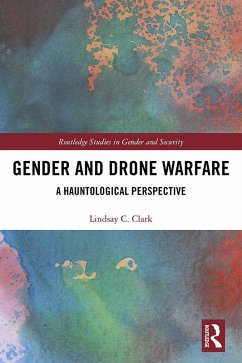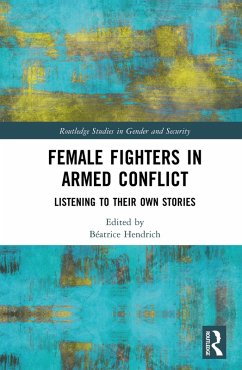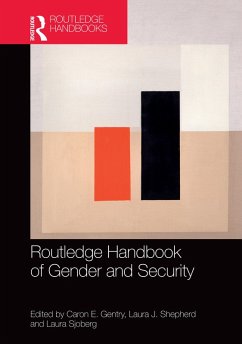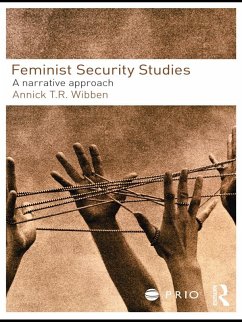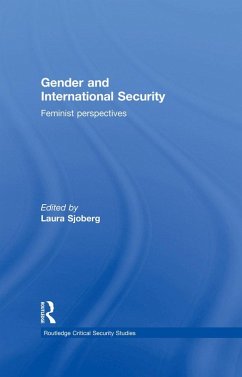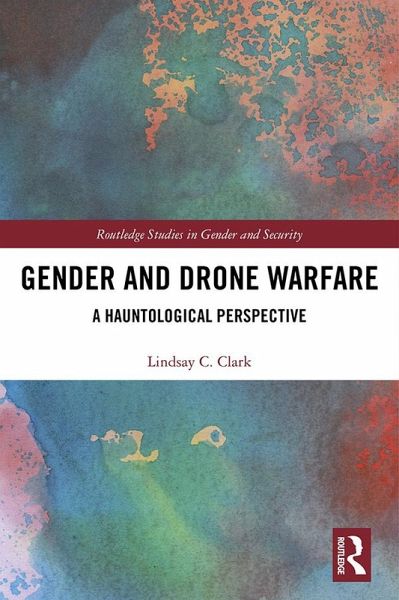
Gender and Drone Warfare (eBook, ePUB)
A Hauntological Perspective

PAYBACK Punkte
22 °P sammeln!
This book investigates how drone warfare is deeply gendered and how this can be explored through the methodological framework of 'Haunting'.Utilising original interview data from British Reaper drone crews, the book analyses the way killing by drones complicates traditional understandings of masculinity and femininity in warfare. As their role does not include physical risk, drone crews have been critiqued for failing to meet the masculine requirements necessary to be considered 'warriors' and have been derided for feminising war. However, this book argues that drone warfare, and the experienc...
This book investigates how drone warfare is deeply gendered and how this can be explored through the methodological framework of 'Haunting'.
Utilising original interview data from British Reaper drone crews, the book analyses the way killing by drones complicates traditional understandings of masculinity and femininity in warfare. As their role does not include physical risk, drone crews have been critiqued for failing to meet the masculine requirements necessary to be considered 'warriors' and have been derided for feminising war. However, this book argues that drone warfare, and the experiences of the crews, exceeds the traditional masculine/feminine binary and suggests a new approach to explore this issue. The framework of Haunting presented here draws on the insights of Jacques Derrida, Avery Gordon, and others to highlight four key themes - complex personhood, in/(hyper)visibility, disturbed temporality and power - as frames through which the intersection of gender and drone warfare can be examined. This book argues that Haunting provides a framework for both revealing and destabilising gendered binaries of use for feminist security studies and International Relations scholars, as well as shedding light on British drone warfare.
This book will be of interest to students of gender studies, sociology, war studies, and critical security studies.
Utilising original interview data from British Reaper drone crews, the book analyses the way killing by drones complicates traditional understandings of masculinity and femininity in warfare. As their role does not include physical risk, drone crews have been critiqued for failing to meet the masculine requirements necessary to be considered 'warriors' and have been derided for feminising war. However, this book argues that drone warfare, and the experiences of the crews, exceeds the traditional masculine/feminine binary and suggests a new approach to explore this issue. The framework of Haunting presented here draws on the insights of Jacques Derrida, Avery Gordon, and others to highlight four key themes - complex personhood, in/(hyper)visibility, disturbed temporality and power - as frames through which the intersection of gender and drone warfare can be examined. This book argues that Haunting provides a framework for both revealing and destabilising gendered binaries of use for feminist security studies and International Relations scholars, as well as shedding light on British drone warfare.
This book will be of interest to students of gender studies, sociology, war studies, and critical security studies.
Dieser Download kann aus rechtlichen Gründen nur mit Rechnungsadresse in A, B, BG, CY, CZ, D, DK, EW, E, FIN, F, GR, HR, H, IRL, I, LT, L, LR, M, NL, PL, P, R, S, SLO, SK ausgeliefert werden.




